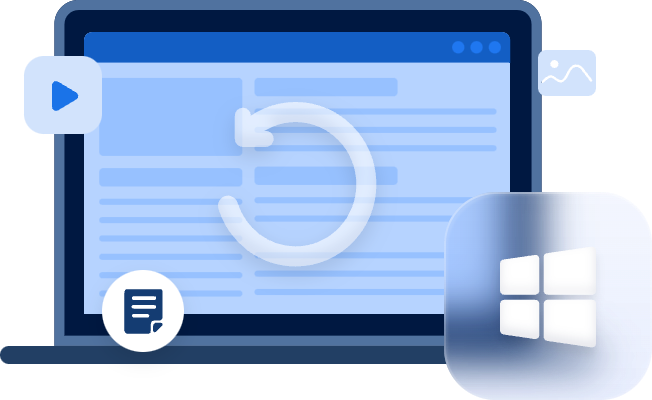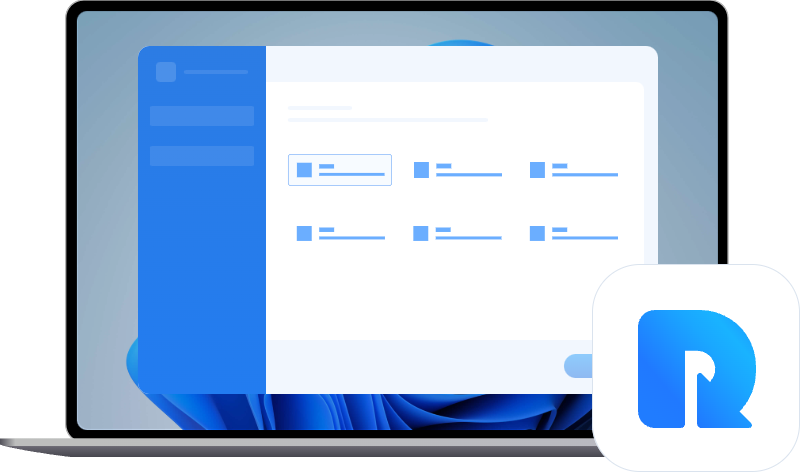Why Is My Laptop So Slow and How to Fix It
This comprehensive article provides a deep dive into the common problem of a slow laptop, presenting various methods to enhance its performance. It covers everything from simple cleaning tips to advanced system tweaks and highlights the use of MyRecover for efficient data recovery.
In today's fast-paced digital era, a slow laptop can be more than just an inconvenience; it can be a barrier to productivity and enjoyment. If you're constantly pondering, "why is my laptop so slow how to fix this issue," you're about to discover several effective strategies to rejuvenate your device's performance.
Unraveling the Mystery: Why Laptops Slow Down
A sluggish laptop can result from various factors, ranging from overburdened hard drives and insufficient RAM to outdated software and the presence of malware. Understanding these underlying causes is the first step in resolving them.
Method 1: Hard Drive Housekeeping
Step 1: Clean Up Your Files
- Delete Unnecessary Files: Go through your files and delete anything you no longer need, such as old documents, duplicate photos, or downloads you've never used.
- Uninstall Unused Programs: Review the list of installed programs and remove those you haven't used in a while. This frees up space and reduces background processes.
Step 2: Utilize Disk Cleanup Tools
- Use Built-In Cleanup Utilities: Both Windows and macOS have built-in tools for disk cleanup. Use them to remove temporary files, empty the recycle bin, and clear system caches.
- Consider Third-Party Cleanup Tools: For a deeper clean, you might opt for reputable third-party cleanup software, but be cautious and choose only well-reviewed tools.
Method 2: Streamlining Startup Processes
Step 1: Audit Startup Programs
- Access Startup Settings: On Windows, use the Task Manager (Ctrl + Shift + Esc), and on macOS, go to System Preferences > Users & Groups > Login Items.
- Disable Non-Essential Programs: Identify programs that automatically start up and disable those that are unnecessary. This can significantly reduce boot time.
Method 3: Keeping Software Up-to-Date
Step 1: Regularly Update Operating System
- Check for Updates: Regularly check for and install updates for your operating system. These updates often include performance improvements and security patches.
Step 2: Update Installed Applications
- Automate Application Updates: Set your applications to update automatically, ensuring you're always running the most efficient versions.
Method 4: Hardware Upgrades for Enhanced Performance
Step 1: Increase RAM
- Determine Your Laptop’s RAM Capacity: Check your laptop’s specifications to see how much RAM it can support and what type you need.
- Install Additional RAM: If possible, purchase compatible RAM modules and install them to increase your laptop’s memory, leading to better multitasking capabilities.
Step 2: Switch to an SSD
- Research Compatible SSDs: Look for an SSD that is compatible with your laptop model.
- Replace Your Hard Drive with an SSD: An SSD can dramatically improve boot times and overall system responsiveness. The switch can be a bit technical, so seek professional help if needed.
Method 5: Conducting Regular Malware Scans
Step 1: Install Reliable Antivirus Software
- Choose a Reputable Antivirus Program: Install an antivirus program that is well-reviewed and trusted. Avoid free versions that might not provide comprehensive protection.
Step 2: Schedule Regular Scans
- Set Up Regular Scans: Configure your antivirus software to perform regular, thorough scans of your system to detect and remove any malicious software.
Method 6: Utilizing MyRecover for Efficient Data Recovery
Step 1: Download and Install MyRecover
- Install the MyRecover Tool: Download MyRecover from its official website and follow the installation instructions.
Step 2: Recover Lost or Corrupted Files
- Run a Scan: Open MyRecover, select the drive to scan, and start the process. It will search for recoverable files.
- Select and Recover Files: Once the scan is complete, preview the files, select the ones you need to recover, and let MyRecover restore them.
In Summary
Addressing the question, "why is my laptop so slow how to fix it," requires a combination of regular maintenance, smart software management, occasional hardware upgrades, and vigilant security practices. Tools like MyRecover are invaluable for managing data recovery, which can play a crucial role in maintaining your laptop's performance.
FAQs
1. How can I prevent my laptop from getting slow in the future?
Regular maintenance, such as cleaning up files, updating software, and running antivirus scans, is key to preventing your laptop from slowing down.
2. Are hardware upgrades always necessary to improve laptop speed?
Not always. Software optimizations and maintenance can significantly boost speed. However, hardware upgrades like adding RAM or switching to an SSD can offer substantial improvements, especially for older laptops.
3. How does updating software improve my laptop's performance?
Software updates often include optimizations that can boost performance and fix bugs that may be slowing down your system.
4. Is MyRecover safe to use for data recovery?
Yes, MyRecover is a reputable and safe tool for recovering lost or corrupted data, helping to maintain your laptop’s efficiency.
5. Can too many browser tabs affect my laptop’s speed?
Yes, having too many browser tabs open can consume a significant amount of RAM, leading to slower laptop performance. It's a good practice to close tabs you're no longer using.


